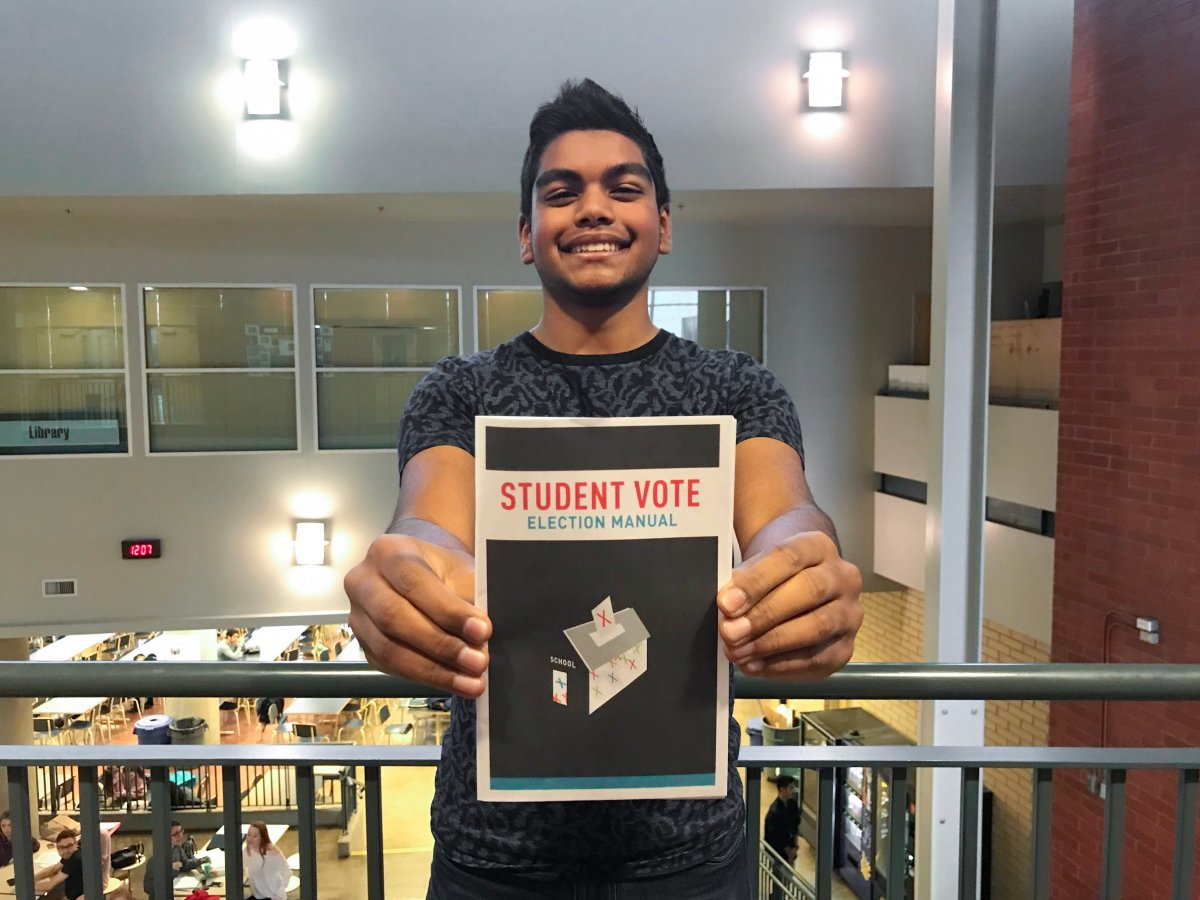Teenagers often don’t get much credit for being engaged and informed about what’s happening in the world around them. Sameer Harris shatters that stereotype.

“I’m personally very big into politics,” the Grade 12 student said with a smile. “I’m planning to go into political science as my first degree and then hopefully law.”
On this day, Harris is getting a taste of what it’s like to be on the front lines of democracy. He’s serving as a deputy returning officer for the Student Vote simulation at Centennial High School.
“I’m here all day making sure all the votes are counted properly and the ballots are put in.”
FULL COVERAGE: Calgary election 2017
Harris’ classmates are keeping him busy. Roughly 700 students out of 1,800 at Centennial High pre-registered to vote in the simulated election.
“Part of high school is preparing students for the real scenario they’ll encounter and this is the best full-on simulation they can have,” Harris said.
Student Vote is a program run by the national non-partisan organization CIVIX, where those who are too young to vote on election day get a chance to experience the democratic process in parallel with real-world elections happening in their community.
The simulation goes beyond putting an ‘X’ on a ballot, which looks like the real one Calgarians will mark on election day. For weeks leading up to the vote, teachers have also used the municipal election as a way to get students to think critically about issues and how to identify which ones matter to them.
“There’s a lot of conversations, particularly in social studies classes, about what the voting entails and what the voting process is,” teacher Alix Esterhuizen said.
“Lots of teachers have talked about it in their homeroom classes, students have advertised it, we have posters up, they’ve talked about it on social media.
“Even non-social studies classes have discussed it to make sure their kids have the opportunity to come down and participate.”
Esterhuizen said events like the municipal election allow schools to give students the tools to become engaged in what’s happening around them and understand what’s needed to make educated decisions prior to voting.
READ MORE: Calgary Election 2017: New poll pegs Bill Smith to take over mayor’s office
“Did you look? Did you make a choice that was made on an informed opinion that you found facts to back up?”
Harris said while the Student Vote might only be a simulation, he’s heartened by the conversations the election has provoked among his classmates and the thought they’re putting into their vote.
“You notice… how much time people take to really think about what they’re putting down,” Harris said. “You see that people really care about politics that they engage in much more than I thought they would.”
READ MORE: Twitter Canada breaks down municipal election trends and hot topics
Esterhuizen said the results of the student vote will be compared to how the general population cast their ballots, providing even more conversation for social studies classes like hers.
“It’s nice that this is at the start of the year because we can have that continuity throughout our course in discussing this and why it matters.”






Comments